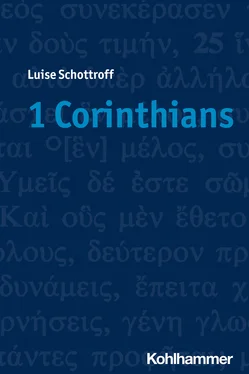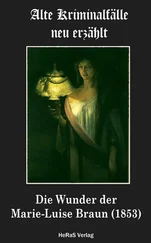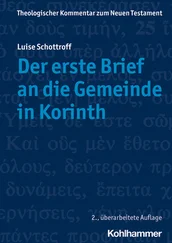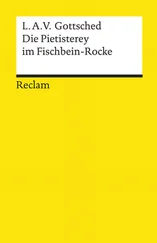The members of the »Heidelberger Arbeitskreis für sozialgeschlichtliche Bibelauslegung« have constructively and critically discussed theses and first drafts. How necessary and constructive it is to understand the New Testament and Paul from the perspectives of the Old Testament and of the history of God’s dealings with Israel became more and more clear to me during these discussions.
Obtaining the literature I needed for this project lay principally in the hands of the team of the state church library in Kassel, especially in those of Mr. Thron. He tracked down mountains of new works, as well as rare and older titles. The work of the whole team was a great source of support for me. Benjamin Porps brought me, even in the snow and on icy streets, big bicycle bags full of books. I could rely on his bibliographic competence. My heartfelt thanks go to the women and men at Kohlhammer Verlag, especially Herr Florian Specker from the editorial office, who also produced the information about the illustrations.
From the bottom of my heart I thank all those who accompanied me on this journey. It was a wonderful time.
Introduction: Who was Paul?
In this commentary I interpret Paul’s First Letter to the Congregation in Corinth from a sociohistorical-theological perspective. 11I would like to present briefly, in five steps, my view of Paul, which developed and gained precision as I worked on the commentary. As I do that, I point in each case to the passages in 1 Corinthians where further material on the issue can be found in the commentary.
Paul was born a Jew and lived and worked as a Jew until he died. At the beginning of his work on behalf of the liberating gospel stands his call by God. His call was so important to Paul that he often refers to it in his letters, including in 1 Corinthians (1:1; 15:8–10; 9:1, 16–27 and more often). Through the callhe received the divine commission to make the message known, especially among the oppressed nations of the Roman Empire, the ethnē (see on 1:22–24), that the God of Israel has raised Jesus from the dead. Jesus was a Jewish man who was executed by the Romans less than twenty years earlier (see on 1:17–18; 2:6–8). That God has raised this executed one means, according to Paul’s proclamation, that the world is no longer subject to the powers that oppose life. God has fenced in the structures of death. Thereby, God has freed the people of Israel and the nations ( ethnē ) from slavery (15:20–22). Paul describes this slavery as the power of death (3:22; 15:22, 26, 56), as the power of sin(15:56) and of the world ( kosmos 3:22). These powers force people to become accomplices in their injustice and to practice it in their lives, that is, to fail to observe the Torah (6:9–11; 5:10–11). Political analysis and mythical concepts of demonic powers ruling the world flow together here.
With the concept of call, as well as with that of the power of sin, Paul is operating within the traditions of Judaism. Despair over the world-power sin, which enslaves everyone, is, for example, the theme of 4 Ezra (on sin, see the basic information at 9:20). For the tradition in which his call is found, Paul points to the prophetic books (see on 1:1). Only under the influence of the separation of Christianity from Judaism beginning in the second century was this call understood as the beginning of a Christian life freed from the law, that is, as a »conversion.« However, compared with the concept Paul himself uses, this one is not appropriate. Paul did not through his call become a Christian but a divine messenger, who spreads the liberating message of Jesus’ resurrection.
Paul proclaimed liberation from acting unjustly under the power of sin, not liberation from the Torah and the fulfilling of its instructions. So the issue is liberation to the Torah, not from the Torah (see on 7:19–20).
Paul’s First Letter to Corinth as a whole is to be understood as an interpretation of the Torah for people from the nations who have embraced the God of Israel and God’s Messiah. They do not understand themselves as Jewish. From the Jewish side, they are seen as people from the nations ( ethnē ) and classified among the broad spectrum of non-Jewish people who live in a Jewish manner. However, in Roman-Hellenistic society, and from the perspective of Roman authorities, they were generally treated Jews. The letter is part of the history of the Jewish interpretation of Scripture that unfolds its meaning for the present (halakah; see, for example at 10:1–13; 5:1–11) in the first century.
It was often asked whether Paul, with his concept of the significance of the Messiah Jesus, had already sprung the boundaries of Judaism. Although this is widely assumed, even in his »Christology« Paul remains within the boundaries of Jewish concepts of his time. Decisive for him is the Shema Israel/ Hear, O Israel; Israel’s God is one (see 8:5–6). For him, God’s Messiah, with his body and with his whole life, embodies divine action in the world of the people of Israel and of the nations. In his writings there are no attempts to deify the Messiah in any way (see on 8:5–6). »Messiah« is portrayed as an embodied activity on God’s part rather than as an individual person who is distinguished from other people (see on 10:4). The assumption that the word »Messiah,« in its translation into Greek as Christos/ anointed one, is in Paul already on its way to becoming a proper name, does not accord with his use of the word. For him it is not a name; when Paul says Christ/Messiah, he is speaking of God’s presence, which frees people from enslavement by the structures of death.
The Messiah has been raised by God, as the world power Rome had crucified him. As Paul was called by God for the gospel to the nations, he began his way as God’s representative, as an apostle (see on 1:1). He understands his commission to be part of a worldwide event (see 16:5–9), as part of the work in a network to which more and more people belong. His concern is not to establish a church or a religion, but to help spread liberation from enslavement to death and to sin in the world of his time. For him, this spread occurs where people come together and investigate with one another what their way to God’s righteous can look like. The concept »mission« can be used only when it is kept separate from the claim that it helps an institution or a teaching to come to power.
By the resurrection of the crucified JesusGod has put an end to death and violence. This message is the foundation of the gospel Paul brings to the Mediterranean world. The Roman Empire enforced its rule through open and subtle violence. This violence includes crucifixions as a means of political intimidation but also »games,« that is, events for the masses in many cities, in which people were tortured and killed (see 4:9). The crowds were supposed to have an apparent role in the great decisions over death and life and to cheer about the violence in the arenas. Whoever didn’t participate in this approval of the violence was in danger of being persecuted by Rome. This anxiety over persecution, therefore, had even brought people who already belonged to the communities of the God of Israel ( ekklēsiai theou ) to deny the crucifixion of their Liberator, that is, to suppress the word of the cross (see 1:17, 18), and also the resurrection of the Messiah as well. Already before the appearance of the Jew Jesus, who was seen by many people as God’s Liberator/Messiah, Rome had persecuted messianic movements (see the basic information before 15:1). Paul battles to see that God’s congregations remain unambiguous about their adherence to a crucified one who was made the Messiah by God. For he understands the assembly or congregation of God as the body of the Messiahin this world. The concept of a collective body, with which God is active in the world, is not to be understood metaphorically (see on 12:12, 27). The congregation, with all its members, embodies the Messiah and acts messianically, with one another and toward those on the outside. It openly identifies violence by name and builds a community in which justice becomes a reality. Justice liberates sexuality from its use as a form of coercion (see.6:12–20; 7:1–40); it gives the poor equal rights and puts an end to privileges the rich enjoy at other people’s expense (1:26–31; 11:17–34). Women are accorded the same level of dignity as men (see 11:2–16). The ethnic diversity, the many native languages spoken by members of the congregation, should not be suppressed for the sake of the lingua franca. There is contention over a form of this speech that can be heard openly in the congregation alongside of prophecy (spoken in the common language; basic information about this is available at 14:1).
Читать дальше












